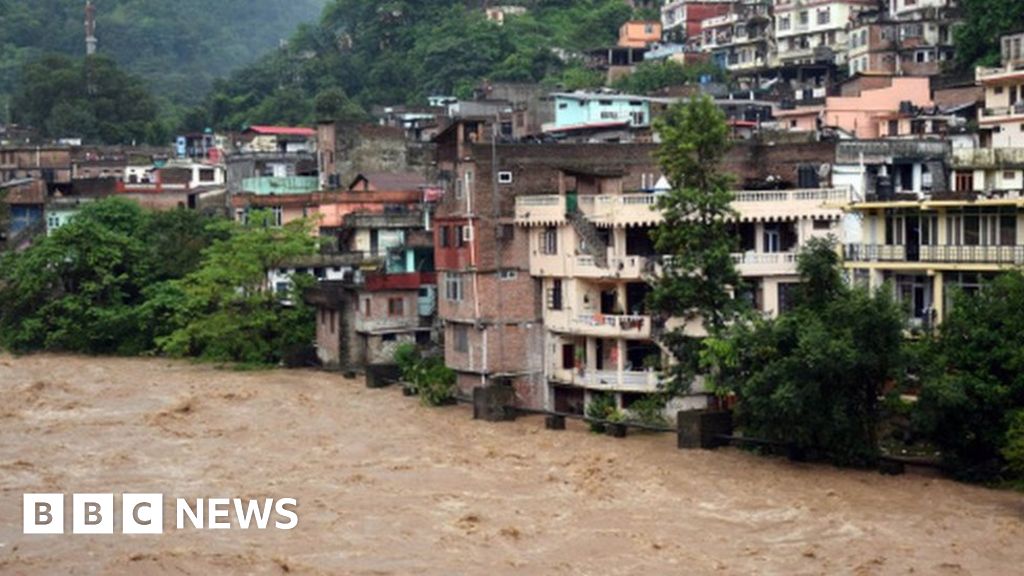Landslides and flash floods have killed dozens in India’s Himalayan region this month, burying homes and buildings. Some parts of Nepal and Pakistan have also suffered damage. Experts say that torrential rains along with unabated construction are frequently triggering disasters in the ecologically fragile region. But adding to that is an unusual increase in rainfall, which is making the terrain even more dangerous. BBC environment correspondent Navin Singh Khadka reports.
A new study has found that mountains across the globe, including the Himalayas, are now seeing more rainfall at elevations where it has mostly snowed in the past.
The change has made the mountains more dangerous, scientists say, as increased temperatures not only bring rain but also accelerate melting of snow and ice. The rainwater also loosens the soil resulting in landslides, rockfalls, floods and debris-flows.
“Our findings provide several lines of evidence demonstrating a warming-induced amplification of rainfall extremes at high altitudes, specifically in snow-dominated regions of the Northern Hemisphere,” says the study, published in June in the Nature journal.
The finding is consistent with a special report of the Intergovernmental Panel on Climate Change (IPCC) in 2019 which said that snowfall had decreased, at least in part because of higher temperatures, especially at lower elevations of mountain regions.
There are more instances of extreme precipitation events occurring now in the form of rainfall even at a high elevation and in all seasons, says Samuel Morin, executive director of the National Centre for Meteorological Research in France and one of the authors of the special IPCC report.
This is mainly because the zero-degree isotherm, the freezing level at which precipitation falls as snow, has moved to a higher elevation because of global warming
“As a result, these [mountain] regions are regarded as hotspots that are vulnerable to high risk of extreme rainfall events and related hazards of flooding, landslides and soil erosion,” the study says.


